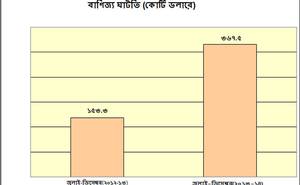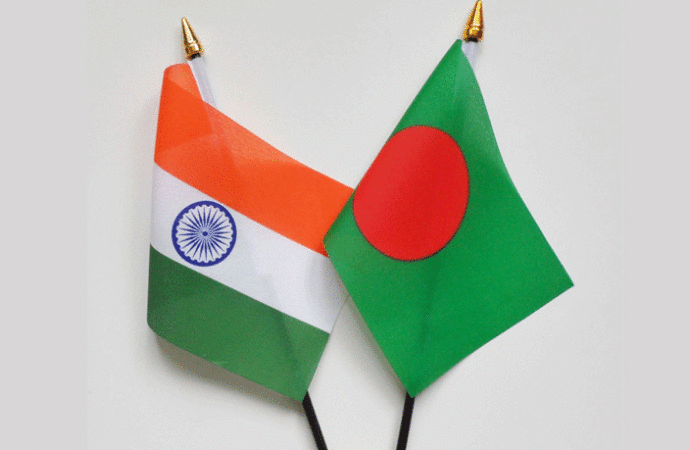Overall trade deficit in Bangladesh has decreased by 58 percent in the first six months of the current fiscal over the same period last year.
But it may not have a positive effect on the economy, some economists say.
Among them are Mohammad Farashuddiun and Zaid Bakht.
Current trade deficit for the first half (July-December) of 2013-14 fiscal stood at $1.53 billion, according to central bank statistics.
It stood at $3.67 billion during the first part of the previous fiscal.
So the drop is by more than half, to 58.28 percent.
This is because income from exports is greater than the cost of import.
“It would have been better for the economy if the decrease in deficit was caused by rise in both import cost and export income,” former Bangladesh Bank Governor Mohammad Farashuddin told bdnews24.com.
“Since the deficit is down because of decrease in import cost, it cannot help the economy.”
Bangladesh Institute of Development Studies (BIDS) research director Zaid Bakt thinks the drop in import will affect industry, which in turn will effect the country’s GDP growth.
“We already have signs of that happening. It is now certain that we will not be able to achieve 7.2 percent GDP growth projected in the budget for the ongoing fiscal,” said Bakht.
“It is usually good for a country to have a small deficit,” said Farashuddin. “Our country relies on imports so it isn’t a good sign when import drops.”
“But it is true that lesser luxury items are being imported. But imports of goods necessary for the industrial sector have gone down too.”
“These sectors are not importing as much since investments are at a standstill. The unrest around the national election has dealt a heavy blow to businesses. This will have its effect on the economy.”
The former governor advised the government and the Bangladesh Bank to attract investment friendly imports. The sectors for gas and electricity will need more investments.
In addition to that, attention must be given to both local and foreign investment.
“It looks like the political situation is good for now,” said Bakht. “But we are not sure how long this may continue.”
“Imports may increase in the remaining six months of the fiscal if the country remains stable. We might not have to face problems.”
There is positive growth in income from exports despite various hurdles, he said.
There was 16.56 percent growth in six months until December. The remittance flow was a bit sluggish but it is starting to pick up from January.”
“That is why I’m saying the decline in trade deficit won’t make it easy for the economy. It would have been the case if regular imports had increased with exports.”
According to Bangladesh Bank (BB), the foreign exchange reserve now stood at $18.1 billion on Thursday.
An analysis of BB’s table for balance of payment shows that a total $16.04 billon was spent on various goods for import sectors (free-on-board, FoB, based, includes EPZ) in the July-December period for the ongoing fiscal.
Income from exports (FoB based, including EPZ) stood at $14.51 billion. The overall deficit stands at $1.53 billion.
Goods worth $16.06 billion were imported in the July-December period of the previous fiscal. Bangladesh had earned $12.83 billion through exports in that period and the deficit stood at $ 3.67 billion.
Trade deficit for the entire 2012-13 fiscal stood at $7.01 billion. The amount for the previous year, 2011-12 stood at $9.32 billion.
Bangladesh has had steady increase in deficit as there were more imports than exports.
Deficit was at $ 2.87 billion during the 2005-06 fiscal, and it grew to be $3.45 billion in the year that followed.
It stood at $5.33 billion in 2007-08 due to the unnatural hike in prices for all goods including food during the worldwide economic depression.
It did come down to $4.71 billion in 2008-09 but increased the next year to $5.15 billion. It had been on the rise ever since, until now.
Source: bdnews24










